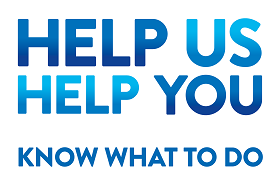Individual funding requests
We all have the same access to the wide range of treatments routinely provided by the NHS should we need them.
Because the NHS needs to make the best possible use of the money it has available to spend on our healthcare, it works hard to ensure that these routine treatments are the most medically effective and appropriate for as many people as possible.
It does mean that some treatments will not automatically be funded by the NHS because they do not represent the most effective or appropriate care for the majority of patients. This could include treatments that have not been approved by NICE, the National Institute for Health and Clinical Excellence, which provides guidance to the NHS.
Our commissioning policy and infertility policy covers which treatments and services we do not routinely fund based on the latest medical evidence.
If you have a medical condition which you or your doctor feels is exceptional and might benefit from a treatment that is not automatically funded, then your GP or consultant can submit an ‘individual exceptional funding request’ (IEFR) to the clinical commissioning group or NHS England if it is a specialist procedure.
Below, you can find out more about IEFRs and how we make decisions about individual applications.
Who can make an IEFR application?
Only your doctor or other medical professional directly involved in your care can make an IEFR request. They will do this using an application form.
Who deals with my application?
Your doctor will send your application to our Individual Funding Request (IFR) team. The IFR team will correspond directly with your doctor, and your doctor will keep you updated about your application and any decisions that are made.
How will my application be processed?
- The application will first be checked to make sure it contains all the information needed to assess your case
- Then it will be reviewed against our local commissioning policies to see if a decision can be made
- If a decision cannot be made, your request will be reviewed by a clinician
- Sometimes the clinician will need to request more information about your individual case
- If the clinician still cannot decide, your request will be considered by a multi-disciplinary panel of public health, pharmacists and GPs
- We will keep your doctor informed at every stage
How long will it take to reach a decision?
A decision will usually be communicated within 56 working days of receipt of application. Occasionally, when the case is particularly complex it may take longer than this and your doctor will be kept informed if this is the case.
Who is on the panel, are they all experts?
Each panel consists of a number of core members including one or more of the following:
- GP
- Medicines management
- Public Health
- Anyone else who may be invited to provide expert advice if it is needed
When and how will I be notified of the decision?
Your doctor will inform you about any decision made. We will inform your doctor within 10 working days of any decision being made.
What if I disagree with decision made?
Your doctor agrees with you, they can appeal on your behalf. This should be made in writing within two months of your doctor receiving the decision letter.
Can I speak to anyone about my application?
If you have any further questions about this process you can speak to your doctor, our PALS team or to the IFR team.
- IFR team - 01244 650388 or email ifr.manager@nhs.net
- PALS team - 0800 218 2333 or email CMCSU.pals@nhs.net





